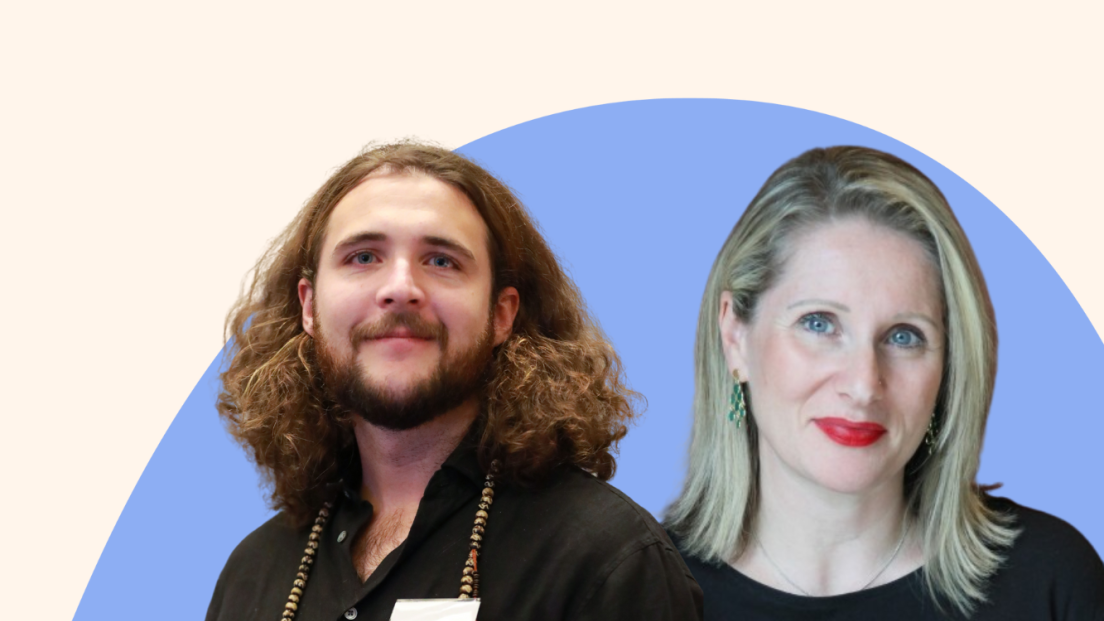This Occupational Therapy Week (#OTWeek), we're introducing you to a couple of Aspect OTs. Meet Andrew Trenfield, from our Hunter team. Andrew is an experienced OT and a regional Operation Leader for the Northern NSW team and the Mid North Coast teams.
How long have you been involved in the disability sector and when did you start with Aspect?
My experience in the disability sector started when I was a new graduate working for Queensland Health in Mackay. I was working as a part of a Mobile Allied Heath Team supporting adults with disabilities. During my new graduate year, I was fortunate enough to fill various secondments with Queensland Health where I continued to support individuals with disabilities. Following my first year of working, I transitioned into various roles across a range of settings such as the hospital, occupational rehabilitation and now working for Aspect as a part of their Hunter team. In total I have approximately 4.5 years working in the disability sector, and have been with Aspect for 3.5 of those.
Could you tell us a bit about your role with Aspect?
My role with Aspect entails working as an itinerant Occupational Therapist supporting individuals and their families on the autism spectrum. I support individuals and their families in their natural environments, such as in their home, school and within the community. Aspect therapists operate under a transdisciplinary model, where you acquire skills from other members of the therapy team, psychologist and speech pathologists to implement as a part of an individuals support plan. My caseload is predominantly supporting individuals funded through the National Disability Insurance Scheme (NDIS). The aim of therapy under the NDIS is to promote the individual’s level of independence, while also building either the family’s, teaching staff or community organisation’s capacity to implement their individualised support plans. Goal areas that I frequently target with families consist of improving fine and gross motor skills, play skills, sensory regulation, and activities of daily living such as toileting and dressing.
What do you love about working with Aspect?
I love the flexibility of managing my own schedule at Aspect. I love working with individual’s in their natural environments and supporting them to achieve their goals. I love being part of a supportive therapy team, where you have the ability to regularly schedule joint visits and collaborate over complex cases. Due to the itinerant nature of the role, the majority of my administration is completed in the comfort of my own home. I also enjoy the range of internal training opportunities which enables me to continue to grow as a therapist.
Why did you decide to become an Occupational Therapist?
I decided to become an occupational therapist at the end of first year university. I had always planned to transition out of the occupational therapy degree into another allied health degree after the first year, however after talking to my educators, they encouraged me to continue with occupational therapy. I always knew I wanted to help people and work in the health industry, and what better way to do it than increasing an individual’s independence to engage in meaningful occupations.
What do you enjoy most about your career in Occupational Therapy?
The thing I have enjoyed the most about being an occupational therapist is the diversity of settings you can work within. So far in my eight year career I have had the opportunity to work in the community, hospitals, private and non for profits organisations, all of which I have supported individuals across the life span. Occupational therapy has allowed me to explore so many new and exciting opportunities over the years, and you never know, you may just end up working in a setting or with a specific population that you thought you never would.
If you’re working with an Occupational Therapist who is just starting out, what are some of the things you’d tell him or her?
No one you work with expects you to be an expert and learning when to say ‘I don’t know but I’ll find out’ is a powerful skill. There are so many skills that you will develop on the job such as communication skills, time management/prioritisation skills, working as a part of a team and finally how to achieve a work life balance. These general skills take time to develop, put the hard work in early and it will serve you throughout your career and across all of your professional positions. Seek regular supervision, attend professional development courses and always ask the people around you for support. Often I get the most unexpected, best advice from the other disciplines I work with. Finally, constantly challenge yourself and put your hand up for new learning opportunities, they will only make you a better OT.




